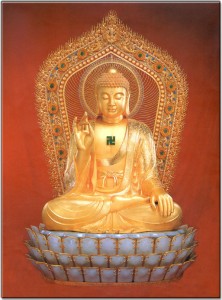J Krishnamurti on Sensitivity – The Heart of Spiritual Living
Jiddu Krishnamurti Speaks on Sensitivity
Sensitivity – The Heart of Spiritual Living
There are many profound and creative ways to describe the spiritual path and a spiritual life, but none capture the essence of spiritual living more precisely or succinctly than the following single word – Sensitivity. The spiritual life can simply be called the sensitive life. The following excerpt from J. Krishnamurti does a very thorough treatment of this topic and below I would like to share these thoughts of his with you.
Book: Krishnamurti’s Notebook
Author: J. Krishnamurti
Pages: 265-266
Without sensitivity there can be no affection; personal reaction does not indicate sensitivity; you may be sensitive about your family, about your achievement, about your status and capacity. This kind of sensitivity is a reaction, limited, narrow, and is deterioration. Sensitivity is not good taste for good taste is personal and the freedom from personal reaction is the awareness of beauty. Without the appreciation of beauty and without the sensitive awareness of it, there is no love. This sensitive awareness of nature, of the river, of the sky, of the people, of the filthy road, is affection. The essence of affection is sensitivity. But most people are afraid of being sensitive; to them to be sensitive is to get hurt and so they harden themselves and so preserve their sorrow. Or they escape into every form of entertainment, the church, the temple, the gossip and cinema and social reform. But being sensitive is not personal and when it is, it leads to misery. To break through this personal reaction is to love, and love is for the one and the many; it is not restricted to the one or to the many.
To be sensitive, all the senses must be fully alive, active, and the fear of being a slave to the senses is merely the avoidance of a natural fact. The awareness of the fact does not lead to slavery; it is the fear of the fact that leads to bondage. Thought is of the senses and thought makes for limitation but yet you are not afraid of thought. On the contrary; it is ennobled with respectability and enshrined with conceit. To be sensitively aware of thought, feeling, of the world around you, of your office and of nature, is to explode from moment to moment in affection. Without affection, every action becomes burdensome and mechanical and leads to decay.
Analysis of Krishnamurti on Sensitivity:

I have highlighted the key parts of this excerpt and these are the areas that I would like to focus on in this analysis with you. There are essentially 6 key aspects to the idea of sensitivity, understanding which will go a long way in giving you deep insight into meditation, spiritual living and enlightenment.
1. Awaken the Senses:
Sensitivity means to really listen, see, smell, taste and feel. To not just glance at the world, but to really take some time to behold it, to really taste the food you are eating, instead of just gobbling it down, while watching TV. In other words to really come into significant contact with the world at a basic perceptual level.
2. Observe all 4 Environments:
There are 4 environments that you need to be sensitive to. Your physical, mental and emotional dimensions being 3 very important environments, with the fourth being the world around you. The more you are able to stay present to what is taking place inside and outside you, the more you will develop your awareness and the further you will move towards Self Realization.
3. Sensitivity Means Vulnerability:
If you are really interested in spiritual growth, you have to be willing to embrace the unknown and face the danger that lurks there. As Krishnamurti points out, you can build walls around yourself, or simply keep yourself lost in entertainment, but if you are truly interested in living a full life, you will have to open yourself up to whatsoever the moment has to offer.
4. All Inclusive Sensitivity:
Along the lines of vulnerability I mentioned above, it is important to note, that to be sensitive means to be sensitive to both beauty and ugliness, to both pleasure and pain. That then really means to be open and going with the flow of life.
5. Impersonal Sensitivity:
Normally sensitivity is attributed to ego related attachments and self image, but Krishnamurti is trying to clarify here that by sensitivity he is speaking of the impersonal observation of the 4 dimensions mentioned above. It is the awareness of what the ego is up to, and the endless chaos that creates. This state of careful observation is sensitivity.
6. Insensitivity Leads to Misery:
If we live without sensitivity, without awareness of the moment, we simply reduce ourselves to being a mechanical, robotic process. Such repetitive living leads to a meaningless existence and exclusively pleasure based activity. The outcome of such activity, breeds attachment, fear and greed, which is devoid of love and always ends in suffering.
Summary of Krishnamurti on Sensitivity:
All of us who are on the spiritual path and passionate about spiritual living, realize that often the hustle and bustle of life can pull us away from moment to moment awareness, which then requires us remember our practice and true purpose. That is why I love the idea of sensitivity so much. Just remember to practice this one thing, and you are back on the path. Just remember to be sensitive and love will sweetly blossom and flow.












